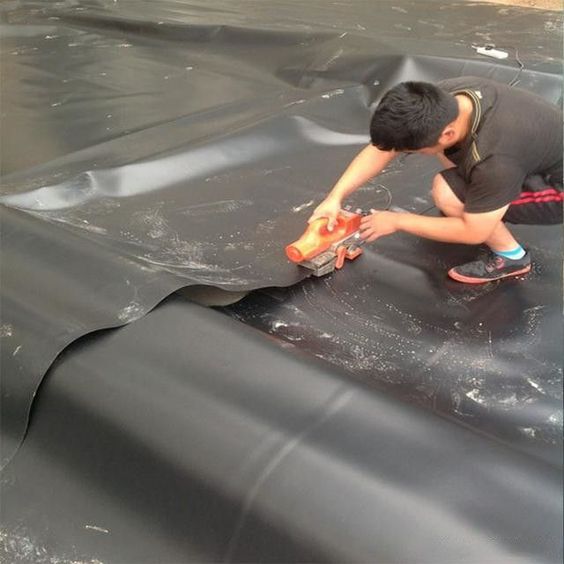Choose the Best Hdpe Sheets With Top Manufacture
High-Density Polyethylene (HDPE) sheets are an exceptional material that has found its way into countless applications across various industries. Known for their versatility, durability, and eco-friendliness, HDPE sheets have become a popular choice for a wide range of projects. In this blog post, we will explore the unique characteristics, benefits, and numerous applications of HDPE sheets.
What is HDPE?
HDPE, or High-Density Polyethylene, is a thermoplastic polymer made from petroleum. It is a versatile material known for its exceptional strength-to-density ratio, making it ideal for a multitude of uses. HDPE is favored for its ability to withstand exposure to various environmental factors, chemicals, and harsh conditions while maintaining its integrity.

Advantages of HDPE Sheets
Durability: One of the primary benefits of HDPE sheets is their exceptional durability. They have a high resistance to wear and tear, ensuring that they can withstand years of heavy use without degradation. This makes HDPE a cost-effective option for long-term projects.
Chemical Resistance: HDPE sheets are highly resistant to a wide range of chemicals, making them suitable for applications in the chemical processing, pharmaceutical, and food industries. They won't corrode or react with most substances, ensuring the safety and longevity of your equipment.
UV Resistance: HDPE is naturally UV-resistant, making it a great choice for outdoor applications. Whether it's for playground equipment, outdoor signs, or marine structures, HDPE can stand up to the elements and maintain its color and structural integrity.
Eco-Friendly: HDPE is a recyclable material, which means it can be repurposed and reused, reducing its impact on the environment. This sustainability factor is becoming increasingly important for businesses and individuals looking for eco-conscious materials.
Applications of HDPE Sheets
Marine Industry: HDPE sheets are commonly used to make boat docks, fenders, and other marine structures due to their resistance to saltwater and UV rays. They also provide a slip-resistant surface for safety.
Construction: In construction, HDPE sheets are employed for various purposes, including temporary barriers, underground water containment, and even as a lightweight formwork for concrete.
Agriculture: HDPE sheets are used in agriculture for lining ponds, reservoirs, and canals to prevent seepage and water loss. They are also employed in greenhouse construction and as protective barriers for crops.
Playground Equipment: The durability and safety of HDPE sheets make them a preferred choice for playground equipment such as slides, swing sets, and climbing structures.
Food Industry: HDPE is widely used for food processing equipment, cutting boards, and food-grade containers due to its non-reactive nature and ease of cleaning.
Packaging: HDPE is used in the manufacturing of various types of containers, including bottles, jugs, and plastic bags. It's a popular choice for packaging because it's lightweight and resistant to moisture.
Healthcare: HDPE is used in the healthcare industry for making products like medical trays, orthopedic braces, and prosthetic limbs due to its biocompatibility and ease of sterilization.
Further Exploring the Versatility of HDPE Sheets
Wastewater Management: HDPE sheets play a crucial role in wastewater management systems. They are used to line landfills, sewage treatment plants, and wastewater containment basins. HDPE's resistance to chemicals and its impermeable nature help prevent environmental contamination.
Mining: In the mining industry, HDPE sheets are used for lining tailing ponds, creating protective barriers, and constructing pipes for transporting abrasive slurry. Their resistance to abrasion and corrosion makes them ideal for this demanding application.
Transportation: HDPE sheets find applications in the transportation sector, where they are used for road and bridge construction. They offer a lightweight and durable solution for creating noise barriers, highway signs, and even vehicle components.
Custom Fabrication: HDPE sheets can be easily machined and fabricated to create custom products. This includes cutting, welding, and forming into specific shapes and sizes, making it a preferred choice for unique projects and prototypes.
Environmental Protection: HDPE is often used in environmental protection applications. It's employed to create containment systems for hazardous waste, ensuring that harmful substances do not leak into the soil or groundwater.
Sound Barriers: HDPE sheets can be utilized for sound barriers along highways and railways. Their ability to dampen sound and resistance to weathering make them an ideal choice for these structures.
Chemical Storage: Due to its exceptional chemical resistance, HDPE is used for manufacturing chemical storage tanks and containers. These tanks safely store and transport a wide range of corrosive and hazardous substances.
Recycled Products: HDPE is not only recyclable but also a popular choice for manufacturing recycled products. Items such as plastic lumber, benches, picnic tables, and recycling bins are often made from recycled HDPE.
Sports and Recreation: From golf course accessories like tee markers and benches to athletic equipment like soccer goals, HDPE sheets are used in the sports and recreation industry due to their resilience, impact resistance, and low maintenance requirements.
Conclusion
The versatility of HDPE sheets is truly remarkable, as they serve a multitude of industries and applications. Their durability, chemical resistance, and eco-friendliness make them a preferred material for numerous projects. Whether it's in the marine industry, construction, healthcare, or any other field, HDPE sheets continue to prove their worth as a reliable and sustainable choice. As technology advances, we can only expect their applications to expand even further, demonstrating the enduring value of this remarkable material.
Appreciate the creator